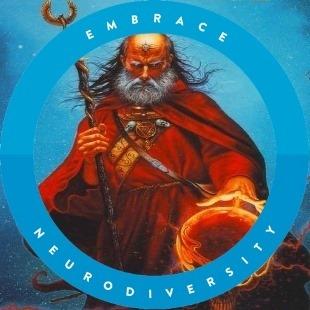But creating 3d games without a gaming engine isnt really possible, right?
-Do I need a game engine
This doesn’t make sense. How did they make great games before there were engines? Of course you can make 3D games without game engines.
wich is a good one
You are 15. You learn very easily as your brain continues to develop until you are 25.
This is specifically the time in your life where you should be doing the hard work and walking the tough path. Falling back onto an engine at a young age is literally just throwing away your potential.
I am a game-engine programmer because I was making all my games from scratch even before I was your age. Difficulty and learning curves are irrelevant at this point in your life, and you only do yourself a disservice by taking “easy” routes.
Refer also to FantasyVII’s reply, as it is exactly what you should be doing at your age. This is the time when you learn the in’s and out’s of the technology.
not just learing for wasting time
Learning is never a waste of time. Unless you’re studying liberal arts, fine arts, or philosophy. But any learning related to programming is never a waste of time.
-How do I learn a programming language well?
By programming.
I think there is much experience I need too,
So start programming and get that experience.
So I wanted to start with a book.
No, you want to start with coding. Books are secondary but can be applied at the same time.
Once again you don’t seem to understand how to maximize your youthful potential. Once again you are doing a disservice to yourself by thinking in terms of, “Do this, and then do that.”
Yes, you need to learn to walk before you can run, but using 1 arm to hold a book doesn’t prevent you from crawling, walking, or running. There is absolutely no reason you should not be doing these things simultaneously, if you even read a book at all, which again is secondary. The top priority is always coding.
Should I just go in the internet and try to find exercises for my level?
Why don’t you just make your own “exercises”?
Instead of asking if you should try to find exercises, why don’t you understand that everything you do is a learning experience and in some way beneficial?
You don’t need to ask before looking for exercises, just go do it.
Why do you need someone holding your hand at every single step of the way?
A normal growing programmer:
“Hmm, I want to program better. I might be able to do Pac-Man now.
Okay, that was fun. I bet I could do Tetris now.
That was fun. I am curious about exercises, so let’s look online for some.
Hmm, I didn’t do as well as I thought. I have more to learn about inheritance, so next I will make a top-down shooter like 1942 and try to incorporate inheritance better.
That was fun, but the way I handled the enemy AI was terrible, plus I think I am ready to do fancier graphics for my next project.”
Some of your questions are okay to ask, such as which is a good engine or book, but some of your questions are worrisome. The only reason a normal growing programmer asks, “What should I do?”, is when he or she either has a total inspiration block (but still generally knows what to do next) or can’t decide between doing this next or that.
The normal programmer simply does whatever he or she wants, always looking for a project to challenge him- or her- self in some new way and works on fixing past mistakes from previous projects. There is literally absolutely no reason he or she would ask, “Should I look online for exercises?”. He or she will simply do it if and when he or she wants. It is all part of the learning process, so just do what you want. It’s even more completely pointless to ask if you should do online exercises given that in the time it took you to ask and get a reply, you could have already done tons of exercises online.
As long as you are programming you are doing it right.
This is your programming journey and it is up to you to make it. It is your decision what project to pursue next, whether to read a book, whether to look online for exercises, etc.
And just because you are doing 1 it doesn’t mean you can’t do the others. Why would doing a personal project stop you from also reading a book and trying out some exercises?
Get programming and forget everything else. Take advantage of your youthful brain while you have it. This is the time when you buckle down and kick programming in its ass.
L. Spiro












